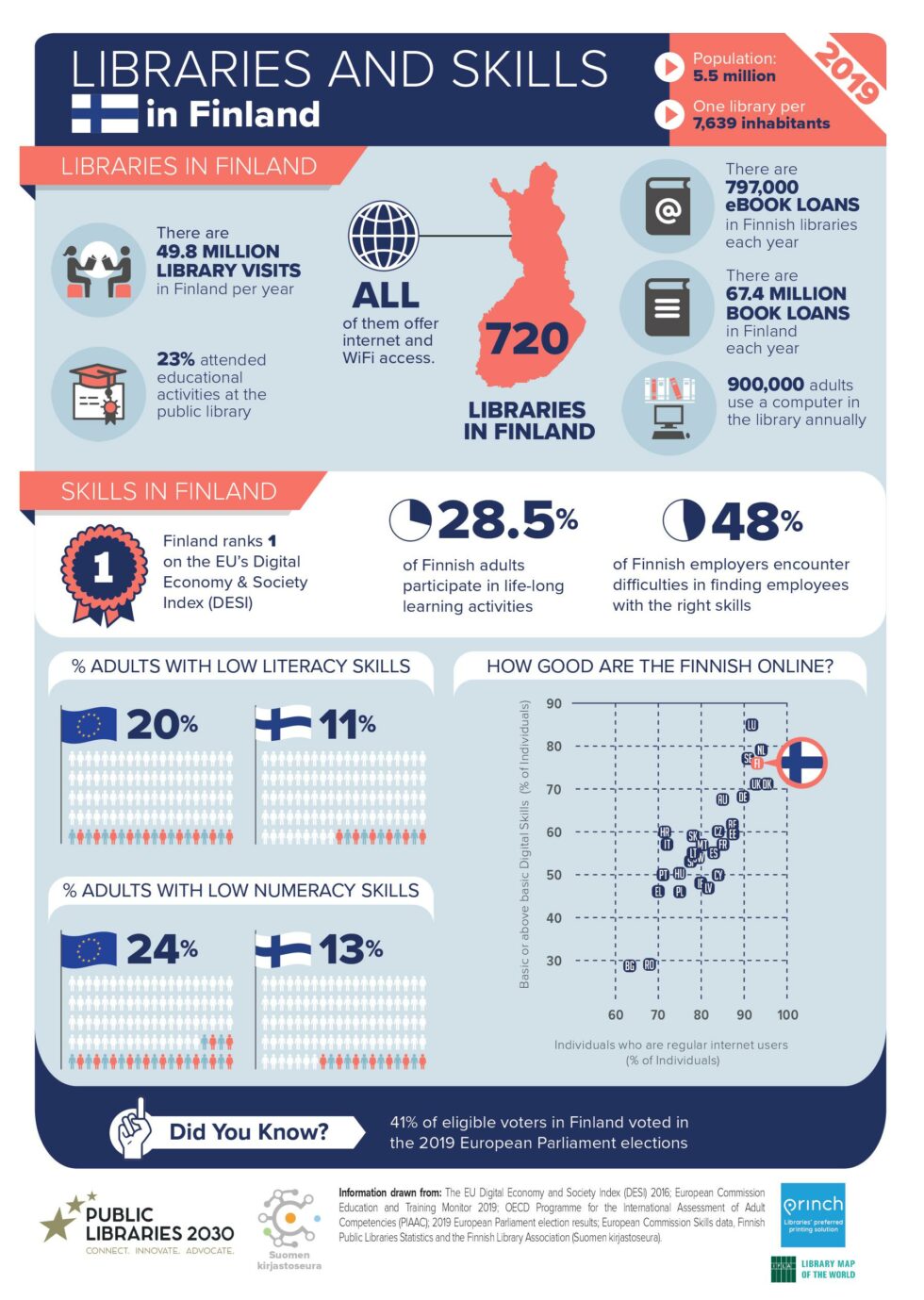We need more digital tools – A Finnish perspective
24 June 2020
 The Finnish Library Association started working on the Digital Travellers project in early 2020. This project gives us an opportunity to get a clear picture of how libraries in Finland provide digital education.
The Finnish Library Association started working on the Digital Travellers project in early 2020. This project gives us an opportunity to get a clear picture of how libraries in Finland provide digital education.
In Finland, we like to think that we have some of the best libraries in the world. Naturally, we like to extend that thought in thinking that our libraries are also giving a digital education of the highest quality. After all, 23% of Finns attended educational activities at a public library in 2019.
But is it really so? While we are ranked number one on the EU’s Digital Economy and Society Index, there is very little comparison to other countries available. The Digital Travellers project will give us an opportunity to see where we stand in Finland compared to other countries.
We started with a resource mapping exercise. This meant that every country, Finland, Poland, The Netherlands and Belgium looked at what type of digital teaching and learning materials are available and shareable in their countries. In Finland, the mapping was done by a library professional Riitta Kangas. Her findings were interesting. Turns out that in Finland there are 17 shareable digital tools which is surprisingly low especially when we compare this to our other project countries. For example, Poland had over 50 resources and Belgium had over 100 resources.
When we dive deeper into the type of resources available in Finland for digital education, only one stands out as a game-based learning. There is a huge need for libraries to have more educational resources in game format as these help reach young people and encourage them in their digital journeys. We also found a few resources aimed specifically at elderly people. As this is the often the biggest group seeking out digital education in Finland, more resources need to be developed for them. It is not uncommon that almost all the people attending a digital education session in a library are over 60 years of age.
In the digital age, tools need to be refreshed frequently as technology changes at a rapid pace. Unfortunately, some of the Finnish resources seem a bit outdated. For example, “Hiiri hukassa” – translated as “A lost mouse” – is a tool to learnto use a mouse and could still be very relevant today. However, its user interface looks old-fashioned and could use a refresh to make it more appealing and relevant to today’s digital culture.
Our job at the Finnish Library Association is to lobby Finnish politicians to give more resources to libraries. I can already see how we could use this information as a policy recommendation. We need more shareable digital education resources in libraries and these need to be targeted at various groups needing digital support. Our resources need to be at the same level as our European partners to ensure that all European citizens have access to relevant and up-to-date digital education in their libraries and beyond.